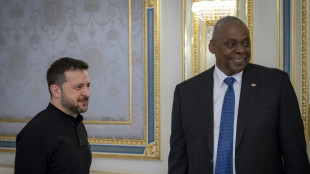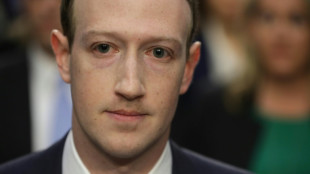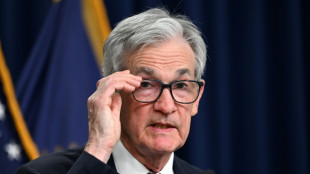

India opposition leader demands tycoon Adani's arrest after US charges
Billionaire Indian tycoon Gautam Adani should be arrested after US prosecutors charged him with paying more than $250 million in bribes to secure lucrative government contracts, opposition leader Rahul Gandhi said Thursday.
Gandhi's demand came after shares in the industrialist's conglomerate nosedived nearly 20 percent in Mumbai, the morning after a bombshell indictment in New York accused him of deliberately misleading international investors.
Adani is a close ally of Hindu nationalist Prime Minister Narendra Modi and was at one point the world's second-richest man, and critics have long accused him of improperly benefitting from their relationship.
"We demand that Adani be immediately arrested. But we know that won't happen as Modi is protecting him," Gandhi told reporters in New Delhi.
"Modi can't act even if he wants to, because he is controlled by Adani."
Wednesday's indictment accuses Adani and multiple subordinates of paying huge sums of more than $250 million in bribes to Indian officials for lucrative solar energy supply contracts.
The deals were projected to generate more than $2 billion in profits after tax over roughly 20 years.
None of the multiple defendants named in the case are in custody.
- 'Lied' -
Adani and two other board members of his Adani Group "lied about the bribery scheme as they sought to raise capital from US and international investors", US attorney Breon Peace said in a statement.
The indictment drove steep losses in flagship listed unit Adani Enterprises and multiple other subsidiaries immediately after the Mumbai stock exchange reopened on Thursday.
The conglomerate's renewable energy subsidiary acknowledged the charges against the tycoon and two other Adani Group board members in a brief statement.
Adani Green Energy said it had decided to halt a planned bond sale "in light of these developments", but did not offer further comment on the allegations.
His nephew and board member Sagar Adani, also named in the indictment, told AFP in October that there was "no political connection" between Adani Group and the Modi government.
"We basically set up what the government really needs, in their best interest," he added.
"All the projects we got have not been granted by any concession but through an independent and transparent auction system."
Modi's government has yet to comment on the charges but a spokesman for his ruling Bharatiya Janata Party (BJP), Amit Malviya, said the indictment appeared to implicate opposition parties rather than his own.
"Don't get needlessly excited," Malviya added, in a post on social media platform X.
- 'Fear of reprisal' -
With a business empire spanning coal, airports, cement and media, the Adani Group has weathered previous corporate fraud allegations and suffered a similar stock crash last year.
The conglomerate saw $150 billion wiped from its market value in 2023 after a shock report by short-seller Hindenburg Research accused it of "brazen" corporate fraud.
It claimed Adani Group had engaged in a "stock manipulation and accounting fraud scheme over the course of decades".
The report also said a pattern of "government leniency towards the group", stretching back decades, had left investors, journalists, citizens and politicians unwilling to challenge its conduct "for fear of reprisal".
Gautam Adani, the family-run conglomerate's founder, denied Hindenburg's original allegations and called its report a "deliberate attempt" to damage its image for the benefit of short-sellers.
He saw his net worth shrink by around $60 billion in the two weeks following the release of the report and he is currently ranked by Forbes as the world's 25th-richest person.
- 'Abject failure' -
Adani Group's rapid expansion into capital-intensive businesses has also raised alarms in the past, with Fitch subsidiary and market researcher CreditSights warning in 2022 that it was "deeply over-leveraged."
Jairam Ramesh, a spokesman for Gandhi's Congress party, said Thursday that the indictment "vindicates" their demand for a parliamentary inquiry into Adani.
Ramesh condemned what he called the "abject failure" of the Securities and Exchange Board of India (SEBI) to hold the Adani Group "to account for the source of its investments".
Adani, born to a middle-class family in Ahmedabad, Gujarat state, dropped out of school at 16 and moved to the financial capital Mumbai to find work in the city's lucrative gem trade.
After a short stint in his brother's plastics business, he launched the flagship family conglomerate that bears his name in 1988 by branching out into the export trade.
V.Reding--LiLuX



